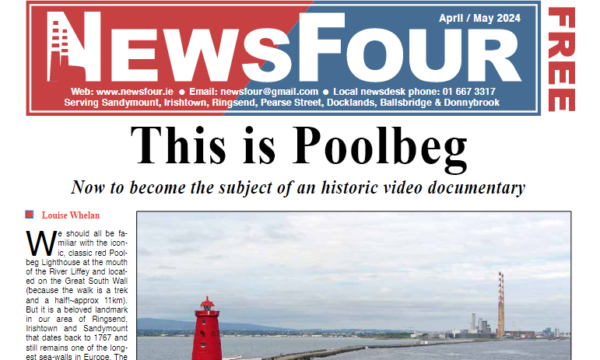
Photographs: Gary Burke/Kathrin Kobus.
By Kathrin Kobus
The RDS was packed again for three days from the 9th-11th January. Over 1,000 students represented 244 schools of Ireland at the 56th BT Young Scientist Fair.
More than 50,000 visitors, young and older students from primary and secondary schools, passed through the doors between Thursday and Saturday and into a packed main hall.
Ecological topics dominated for many projects, from coastal erosion, weather warnings, and new transport fuels, moving away from diesel and petrol or as hybrids, to energy-saving and producing technologies, medical gadgets and applications.
It was not made easy for the four different panels of judges who were tasked to find firstly, the winners in their respective categories Social and Behavioural Sciences; Chemical, Physical and Mathematical Sciences; Technology; and Biological and Ecological Sciences and secondly to agree upon the overall winner(s).
Dublin 4 secondary schools rather took a step back this year. One student from St Michael’s, Yichang Wang had entered the intermediate category with his biodegradable package studies titled ‘Not plastic? The single use revolution’.
The other two projects came not just from one school but the same class, with the same science teacher. All four are pupils of Conor Maxwell from Sandymount Educate Together.
Greta Whipple and Sarah Boissier are working on the more eco-friendly cotton fabric-based clothing bag to prevent microplastic used in synthetic fibres from escaping into the ground water while doing the laundry. They are still working on the bag and haven’t tested it yet in the washing machine.
Harper Walsh and Arlo Daly focussed on ‘The environmental impact of solar energy’, or rather the impact that the materials and substances used in solar panels can have when coming in contact with soil and how it impedes or hinders plant growth.
Both projects were entered for the junior group category.
It was the first time for the school participating at the Science Fair. Surely they will have taken inspiration for coming years, seeing first-hand how high the standards are set for awards and honorary mentions.
This year the duo Cormac Harris and Alan O’Sullivan, from Coláiste Choilm were the overall winners with their project ‘A statistical investigation into the prevalence of gender stereotyping in 5-7 year olds and the development of an initiative to combat gender bias’, entered in to the Intermediate section in the Social and Behavioural Sciences category.
The best Individual award went to Dubliner Oscar Despard from Sandford Park School in Ranelagh. ‘Applying Data-Driven Experimental analysis to the Irish Longitudinal Study on Ageing’.
The winners are going to represent Ireland at the European Union Contest for Young Scientists, which takes place in Santander, Spain in September 2020.
The BTYS will return next January for its 57th exhibition.



